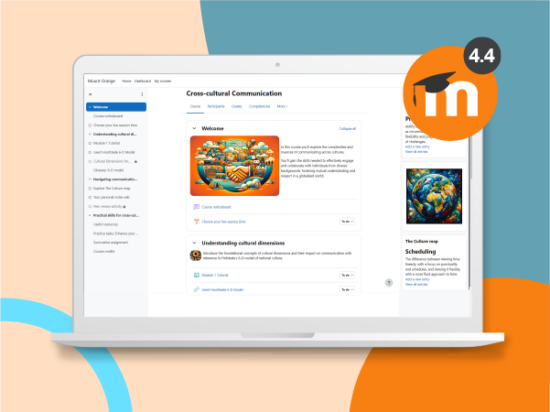Princess Alice Hospice, a charity operating in Surrey, South West London and Middlesex was established in 1980 with a vision to help relieve pain and control patients’ symptoms with free palliative and specialist end of life care and high quality nursing.
As part of the provision of specialist patient care, the charity’s objective is to provide education to its staff, volunteers and to the wider community in order to maintain their high quality standards of care and share their specialist knowledge and experience. Their educational service runs in the form of study days and short courses, including a distance learning course called the “European Certificate in Essential Palliative Care”, with over 200 candidates enrolled. This 8 week course, currently provided by the hospice via post with an assessment day at the end of the training, has benefitted many learners in the UK and abroad – who may have found it difficult to travel to the hospice to take part.
Challenges
Once it was established that the charity would require a virtual learning environment (VLE), one of the challenges faced was to obtain the funding for its initial implementation and on-going maintenance. With the NHS contributing to around 23% of their income, the remaining 77% relies on funding from donations, events, retail and other means. In order to ensure its expenditure remained largely focused on patient and community care, the hospice needed to raise the funding from another source.
The next challenge the charity faced was the necessity for their course delivery to include a collaborative, blended learning style. As the hospice courses are focused on emotive and sensitive topics, the learning style is focused on discussions and changing attitudes and approaches towards care as opposed to teaching knowledge. Therefore, the charity needed to ensure that their e-learning platform would give learners the ability to progress in stages, give feedback, reflect and remain interactive with the facilitator at all times throughout the training.
Solution
The next step for the hospice was to identify the most suitable e-learning platform to meet the requirements and primary business objectives. As part of its investigation the charity trialled a pilot Moodle site, used at the time by one of its partner hospices. Following the trial Princess Alice Hospice concluded that the Moodle Open Source e-learning platform met all its requirements and would allow the charity to deliver the type of blended learning and collaborative approach the company sought.
From this decision on the VLE platform, Princess Alice Hospice then set out to obtain a suitable Moodle supplier to assist the charity in the implementation and set up of the site. From the initial shortlist of 3 UK Moodle partners, the charity elected HowToMoodle as their Moodle supplier, due to their existing experience of working with healthcare organisations, its competitive pricing, and the reassurance and confidence the company gave in assisting the hospice with their project.
Over the following months HowToMoodle assisted Princess Alice Hospice in the set up and hosting of its new Moodle website. Some of the charity’s core Moodle team attended Moodle administrator training to enable them to test their Moodle site and explore its features, with the knowledge of how best to do this, prior to its launch. This saved the organisation valuable time than if they were to explore the extensive range of Moodle features themselves.
Benefits of Moodle VLE for Princess Alice Hospice
- The Open Source solution enabled the charity to save funds on its implementation without any initial or on-going licence costs, allowing them to instead invest the available funds on vital training and branding requirements.
- Moodle gave the hospice the flexibility to deliver the collaborative learning approach that is essential for their course delivery.
- The Moodle solution allowed the hospice to style their site to reflect the organisations branding adequately.
- The availability of social functionality (such as Forums, Chat and Wiki) within Moodle allows the organisation to generate feedback, discussions and for use internally for its mandatory training requirements.
“We needed someone we could have confidence in, knowing that whenever there was an issue or query there would always be a friendly voice on the other end of the phone who could fix our problem, and be happy to help us.” – Jane Berg, Head of Education



